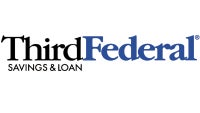Meet our Bankrate experts
Written by: Linda Bell, Senior Writer, Home Lending
For more than two decades, I have covered the housing market, including in-depth coverage of the 2008 residential real estate collapse. To increase my knowledge of home equity and HELOCs, I earned a Certified HELOC Specialist designation from the National Association of Mortgage Underwriters (NAMU). Throughout my career, I have won more than two dozen awards, most notably from the National Association of Real Estate Editors (NAREE) and the New York Association of Black Journalists (NYABJ) for an investigative series I produced on minorities and the housing industry.
Read more from Linda Bell
Edited by: Katie Lowery, Editor, Home Lending
I'm an editor on the Loans and Home Lending teams, where I shape content to help people navigate borrowing money, personal finance and overall financial health. I'm a Certified Financial Health Counselor and have 12 years of experience editing financial and economic content.
Read more from Katie Lowery
Reviewed by: Mark Hamrick, Senior Economic Analyst
I am an award-winning business and financial journalist, with decades of experience in the news business. I can often be found on television, radio and in print, where I make complex financial topics easy to understand. I have also helmed two major journalism organizations and am a champion for financial literacy and press freedom around the globe.
Read more from Mark Hamrick







